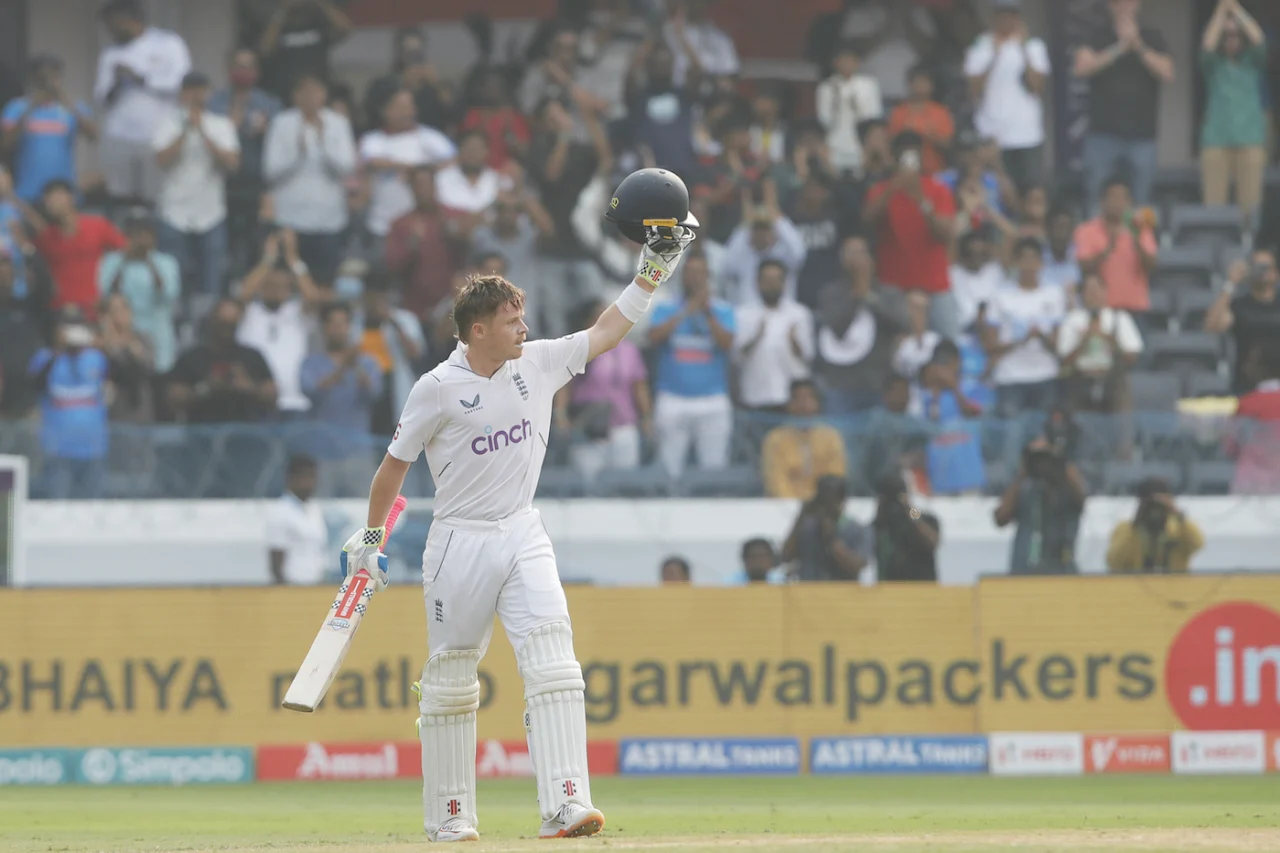Legendary Cricketer Stuart Broad praised England batsman Ollie Pope for his remarkable century in the 2nd innings of the first test match against India. Broad analyzed Pope’s character and performance, highlighting his importance to the new-looking England side under the leadership of Brendon McCullum and Ben Stokes.
On day 3 of the ongoing match against India in Hyderabad, Ollie Pope played a significant role in helping England achieve a lead of 126 runs. Despite challenging Indian conditions, the batsman recorded his greatest Test century and helped his team come within striking distance of victory in the first game.
In his Dailymail column, Stuart Broad praised Ollie Pope’s character, who has shown a lot of grit and determination to perform for the team at the highest level. Broad cited an example of Pope playing through a difficult period and finding a way to do well for the team. He also credited Ben Stokes and Brendon McCullum for giving Pope the confidence to perform for the team.
“He’s not one of the extroverts, just a nice guy, happiest walking his dog but behind the unassuming demeanor lies a really gritty character. He does the less glamorous stuff brilliantly, tricky little periods bowlers throw at him, finding ways to get himself out of it.”

“He performs well in the knowledge that he is being backed, this is a player that can adapt and a player that England can build their success around.” Stuart Broad said
Ollie Pope played aggressively, putting the Indian team under pressure, but they soon lost wickets due to the bowlers’ attack. However, he showed determination and grit, bailing his team out of difficulty and holding the fort. He played spin like a sub-continent batter, with great control over his shots against quality Indian spinners.
England gained the lead in the second innings and finished the day with 126 runs. Ollie Pope scored his fifth Test century, remaining unbeaten with 148 runs at the stumps on Day 3. Ben Stokes’s led side would aim to establish a target of more than 200 runs for India in the first Test. A target of 200 runs would make it challenging for Indian batters to win the match at home.
